What products can be used to clean an induction hob?
Cleaning an induction hob is much easier than other types of hobs. It doesn't heat up, so food rarely sticks to it. The surface is glass ceramic, which can be cleaned with any detergent that does not contain abrasive particles. You can use regular dishwashing detergent, special chemicals, or folk recipes based on vinegar, soda, and ammonia.
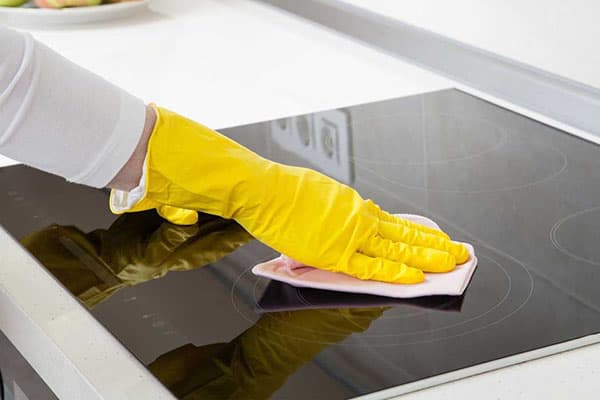
Every day
Induction hobs are considered the easiest to clean. It is enough to wipe the equipment every day, and it will always remain clean.
For daily care, you will need a microfiber or sponge cloth (ideal) or a cloth or sponge.
Yes, yes, you don’t need to use anything else. It is enough to wipe off food that gets on the stove with a dry or barely damp cloth. The surface of the device remains cold during operation. If food burns, it is only from heated dishes.
If something escapes while cooking, it is better to clean the surface immediately. Lift the dish and wipe the stain with a dry cloth. The induction panel practically does not heat up, so you can clean it directly while heating. You won't get burned, and the cloth won't catch fire.
We wash away stubborn stains
The main types of contamination on an induction hob:
- scale;
- fat;
- water stains;
- finger marks;
- burnt food (rare).
Usually the stove does not become so dirty that it becomes difficult to clean.Stains can be easily removed with regular dishwashing detergent and a sponge. To avoid streaks, wipe off the moisture with paper towels.
Special means
Special products are available to care for induction panels. Their use provides certain advantages: the composition includes substances that, when applied to glass ceramics, create an invisible film. It protects the stove from dirt and prevents food from sticking.
- Special scraper for glass ceramics (from 250 RUR). Helps quickly and safely remove grease, dried food residues, scale, and plaque. The scraper is used while holding it at an angle of 45 degrees.
- Cleaning product ELECTROLUX, 250 ml (from 180 rub.). It does not leave scratches, while effectively removing burnt food, polishing glass ceramics and covering it with a protective film.
- Cleaner for glass-ceramic surfaces Glutoclean, 750 ml (about 500 rub.). German quality product. It has a spray bottle, making it easy and quick to apply. Gently cleans the surface, removes grease, scale, and carbon deposits.
- Cream for cleaning glass ceramics and microwave ovens Astonish, 235 ml (170 RUR). An economical, thick, concentrated product cleans all types of dirt on induction cookers. Smells pleasant and creates a protective layer on the surface.
- Beckmann for cleaning glass ceramics, 250 ml (300 rub.). Removes stains well thanks to micro polishing balls. Also contains silicone oils, which create a heat-resistant film and make cleaning the hob easier. And jojoba oil gives the stove a beautiful shine.
- Sano Ceramic Stove Tops Cleaner, 300 ml (430 RUR). A creamy cleaner that polishes and perfectly cleans glass ceramics, chrome, nickel and stainless steel. Recognized with the Israel Institute of Standards Platinum Mark award.
- Detergent for stoves, ovens and microwave ovens Ecover Oven & Hob cleaner, 500 ml (650 RUR). Copes with all types of contaminants. It features the most natural composition. The bottle itself is made from recycled plastic, and the product does not contain harsh chemicals or phosphates that pollute groundwater. Does not irritate sensitive skin.
Folk remedies
Despite the fact that the induction cooker is a modern invention, many housewives use “popular” products to clean it. They are more environmentally friendly, cheaper and also cope quite well with pollution.
What means can you use to clean the stove?
- Vegetable oil for soot. Apply it to the stain and wait 5-10 minutes. Soak a sponge in warm water and remove the softened carbon deposits along with the oil.
- Baking soda. Dilute baking soda with water to a paste consistency. Apply to the problem area (any type of dirt) for 5-10 minutes. Rub the surface with a damp cloth, and then rinse off the remaining soda.
- Ammonia for stains, fingerprints and greasy deposits. This folk remedy will help clean the stove until it shines. To 5 tbsp. add 1 tbsp to spoons of water. a spoonful of ammonia. Pour into a spray bottle. Treat the surface and wipe with a dry cloth.
- Vinegar for disinfection, removal of scale and foreign odors. Mix salt vinegar half and half with water and pour into a container with a spray bottle. Spray onto the stove. After a few minutes, wipe the surface with a paper towel or rag.
Removing scratches
The glass-ceramic surface of an induction hob is strong enough to support the weight of pans and pots. She is not afraid of strong heat. However, scratches may appear on it.Most often they are microscopic and visible only in light and glare. If they irritate you or there are so many of them that the appearance of the hob suffers, the surface can be polished.
GOI paste will help you cope with the task. It can be found at the car market. Costs about 50 rubles. for 300 g. This volume is quite enough to polish an induction cooker.
- Paste numbers 1,2,3 are softer and mask microscopic scratches.
- Number 4 – abrasive. It is used in tandem with a sanding machine (felt attachment).
To put the stove in order, you need to dilute the paste with a few drops of machine oil, apply it to the scratched area and rub vigorously with a thick cotton cloth. The process is quite labor-intensive, but certainly worth it. After polishing, the surface will become perfectly smooth and shiny.
In most cases, GOI paste completely solves the problem of scratches. It may not work only if the glass ceramics is covered with cracks and chips. In this case, there is only one option left - to completely change the top protective layer. On average, glass-ceramic coating costs 10,000 rubles.
Rules of care
In order for an induction cooker to serve for a long time and look perfect, you must follow the operating rules. Follow these guidelines:
- Make sure the cooking surface is clean before cooking.
- Use special flat-bottomed cookware that will not scratch the glass ceramics.
- Clean the stove regularly with a cloth.
- Wash it whenever it gets dirty with approved cleaners.
- After washing, wipe the surface dry.
- If the stovetop gets hot from a pot, wait until it cools completely before cleaning.
- If you need to immediately wipe a stain from a hot surface, use a dry cloth or napkin.
- Monitor the condition of the wire and socket.
What is not recommended to do?
An induction hob requires care from the housewife both in cleaning and cooking. If handled carelessly, there is a risk of scratching the protective layer and may even cause chips.
Contraindicated:
- Clean the hob with products containing abrasive (solid) particles - they can leave scratches. For the same reason, you cannot clean the stove with hard objects: knives, metal sponge.
- Rub the surface if there are solid food particles on it: sugar, salt, etc. You must first brush them off or let them soak.
- Hanging heavy objects over the stove or dropping them. If they fall on the surface, it may crack.
- Start cooking while there is still food left on the panel. Otherwise they will burn. The surface itself does not heat up, but the dishes do from the food being cooked in it.
- Expose the surface to sudden temperature changes - place dishes from the refrigerator on it, spray with cold water.
Like any cooking surface, an induction cooker tends to get dirty. This happens during the cooking process. And if other types of stoves - gas, electric, Hi-Ligh - can be washed only after they have cooled down, then it is better to wipe off stains immediately with induction. She remains cold, this is her main advantage. In case of severe contamination, manufacturers recommend acquiring a special scraper and detergent with silicone oils. They will help you quickly and effectively wash glass ceramics until they shine, and also protect them from dirt sticking in the future.If you don’t have a special cleaner at hand, baking soda, vinegar, ammonia, and regular dishwashing detergent will help out.
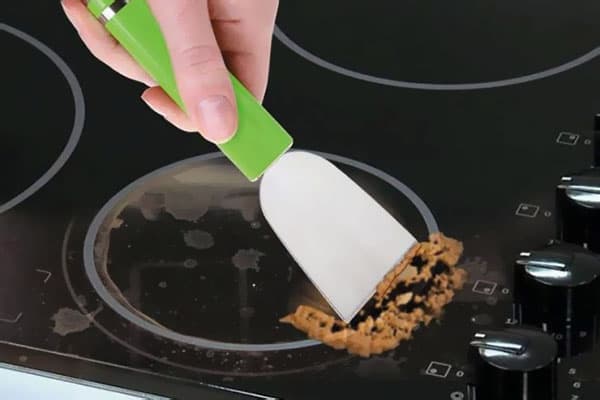
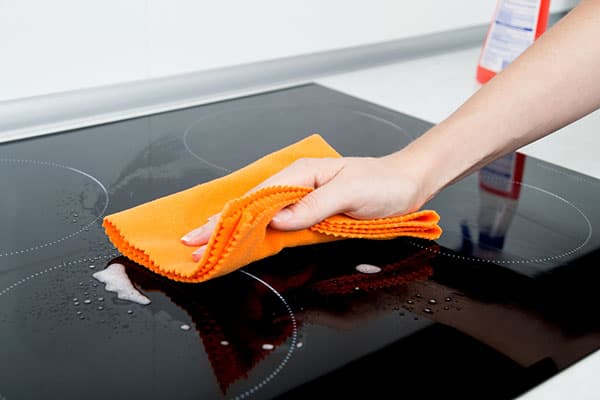
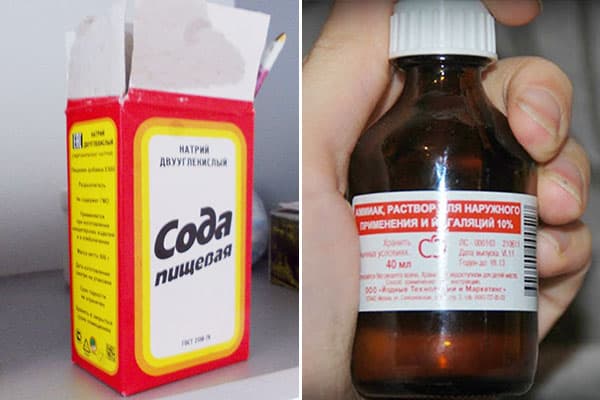
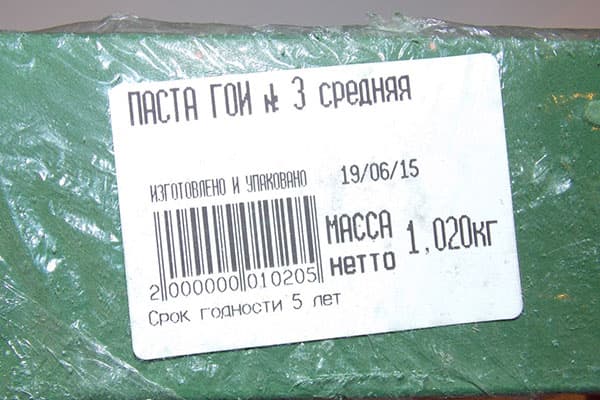
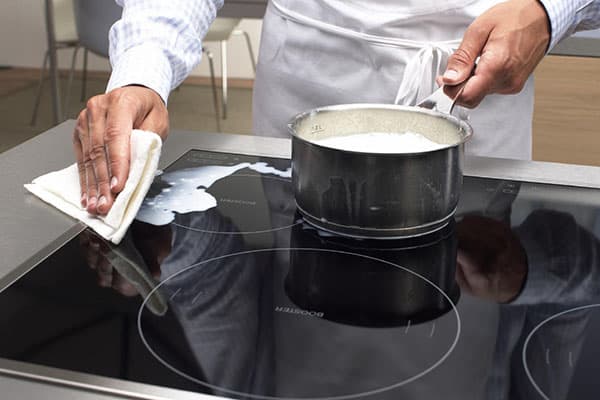
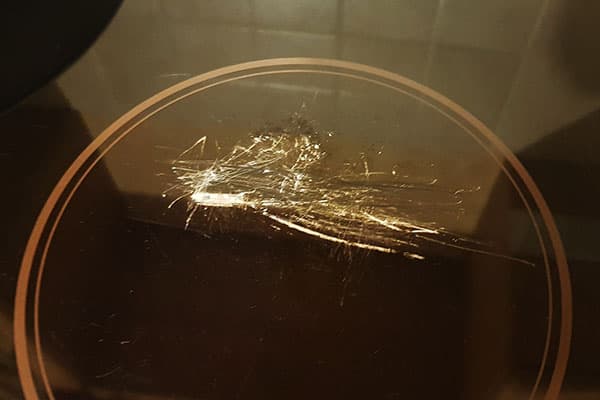
Now I’ll know how to preserve the pristine beauty of my Indesit tiles, I wouldn’t want to spoil it)
A solution of ammonia washes the induction cooker well.